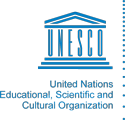2015. 15 p.
Periodical title:
Sex Education: Sexuality, Society and Learning, 15 (6), pp. 671-685
Description:
Evidence shows that a focus on gender and power in sexuality/HIV education increases the likelihood of achieving positive sexual health outcomes, and international agencies have called for a shift to a gender-focused approach. However, questions remain about the implementation of such programmes, including how best to prepare teachers to deliver such curricula. In the development of the national school-based HIV prevention curriculum in Nigeria, several state governments partnered with feminist (or like-minded) non-governmental organisations to collaborate on teacher training. This case study, drawing on teacher interviews and classroom observations, explores the effects of that experience. Teachers reported that the 10-day training developed their competence, confidence, and commitment to foster students' critical thinking about gender issues. Specifically, they reported changes in their own gender attitudes, pedagogic skills and connectedness with students, particularly girls. The findings suggest that high-quality training can prepare teachers – including those in large, resource-poor school systems – to deliver the kind of gender-focused sexuality/HIV education that is proving most effective at advancing sexual health outcomes. Non-governmental organisations can be important partners for providing such training. Further research is needed to assess what additional social and educational outcomes may result from gender-focused sexuality/HIV education.
Links:
Resource types:
Keywords:
Languages:
Record created by:
IIEP


